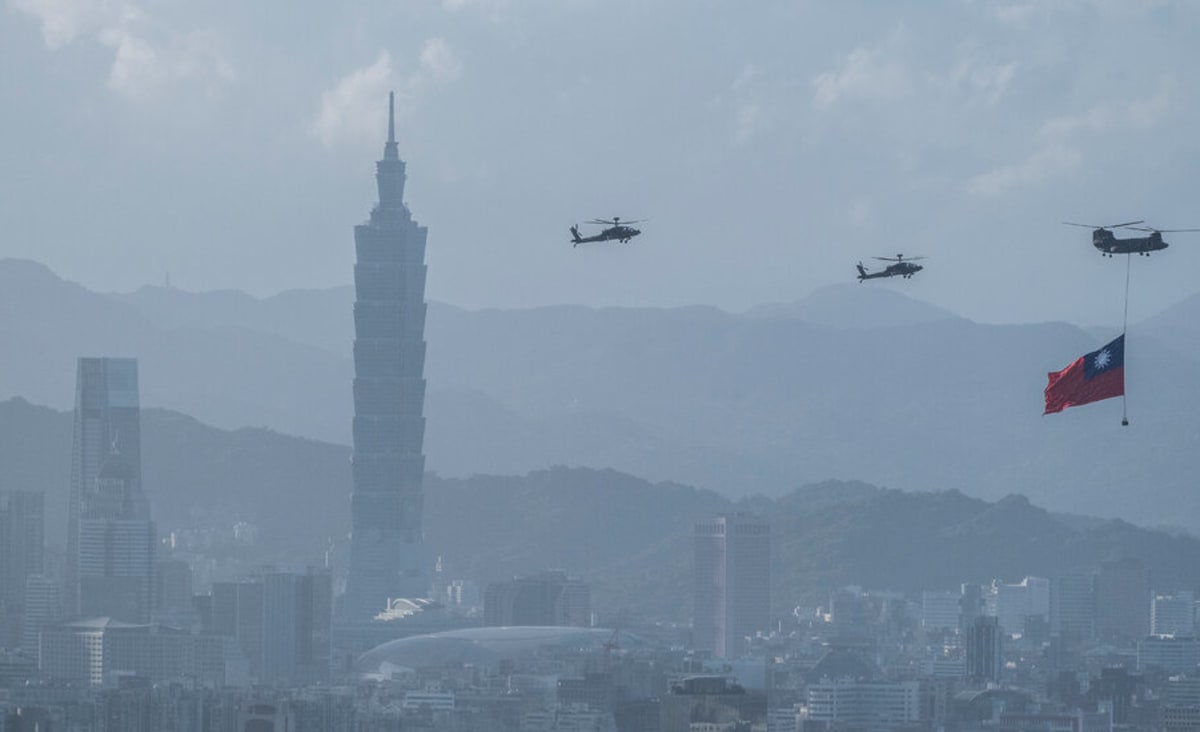
www.nytimes.com
‘Starting a Fire’: U.S. and China Enter Dangerous Territory over Taiwan
The self-ruled island has moved to the heart of deepening discord and rivalry between the two superpowers, with the potential to ignite military conflagration and reshape the regional order.
Politics
The 25 Chinese fighter jets, bombers and other warplanes flew in menacing formations off the southern end of Taiwan, a show of military might on China’s National Day, Oct. 1. The incursions, dozens upon dozens, continued into the night and the days that followed and surged to the highest numbers ever on Monday, when 56 warplanes tested Taiwan’s beleaguered air defenses.
Taiwan’s jets scrambled to keep up, while the United States warned China that its “provocative military activity” undermined “regional peace and stability.” China did not cower. When a Taiwanese combat air traffic controller radioed one Chinese aircraft, the pilot dismissed the challenge with an obscenity involving the officer’s mother.
As such confrontations intensify, the balance of power around Taiwan is fundamentally shifting, pushing a decades-long impasse over its future into a dangerous new phase.
After holding out against unification demands from China’s communist rulers for more than 70 years, Taiwan is now at the heart of the deepening discord between China and the United States. The island’s fate has the potential to reshape the regional order and even to ignite a military conflagration — intentional or not.
“There’s very little insulation left on the wiring in the relationship,” Danny Russel, a former assistant secretary of state, said, “and it’s not hard to imagine getting some crossed wires and that starting a fire.”
China’s military might has, for the first time, made a conquest of Taiwan conceivable, perhaps even tempting. The United States wants to thwart any invasion but has watched its military dominance in Asia steadily erode. Taiwan’s own military preparedness has withered, even as its people become increasingly resistant to unification.
All three have sought to show resolve in hopes of averting war, only to provoke countermoves that compound distrust and increase the risk of miscalculation.
At one particularly tense moment, in October 2020, American intelligence reports detailed how Chinese leaders had become worried that President Trump was preparing an attack. Those concerns, which could have been misread, prompted Gen. Mark A. Milley, the chairman of the Joint Chiefs of Staff, to call his counterpart in Beijing to assure otherwise.
“The Taiwan issue has ceased to be a sort of narrow, boutique issue, and it’s become a central theater — if not the central drama — in U.S.-China strategic competition,” said Evan Medeiros, who served on President Obama’s National Security Council.
China’s ambitious leader, Xi Jinping, now presides over what is arguably the country’s most potent military in history. Some argue that Mr. Xi, who has set the stage to rule for a third term starting in 2022, could feel compelled to conquer Taiwan to crown his era in power.
Mr. Xi said Saturday in Beijing that Taiwan independence “was a grave lurking threat to national rejuvenation.” China wanted peaceful unification, he said, but added: “Nobody should underestimate the staunch determination, firm will and powerful ability of the Chinese people to defend national sovereignty and territorial integrity.”
Few believe a war is imminent or foreordained, in part because the economic and diplomatic aftershocks would be staggering for China. Yet even if the recent flights into Taiwan’s self-declared air identification zone are intended merely as political pressure, not a prelude to war, China’s financial, political and military ascendancy has made preserving the island’s security a gravely complex endeavor.
Until recently, the United States believed it could hold Chinese territorial ambitions in check, but the military superiority it long held may not be enough. When the Pentagon organized a war game in October 2020, an American “blue team” struggled against new Chinese weaponry in a simulated battle over Taiwan.
























































